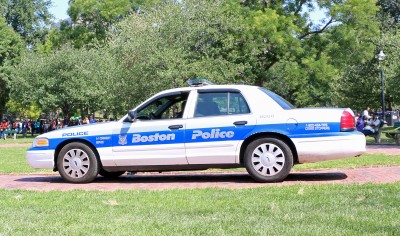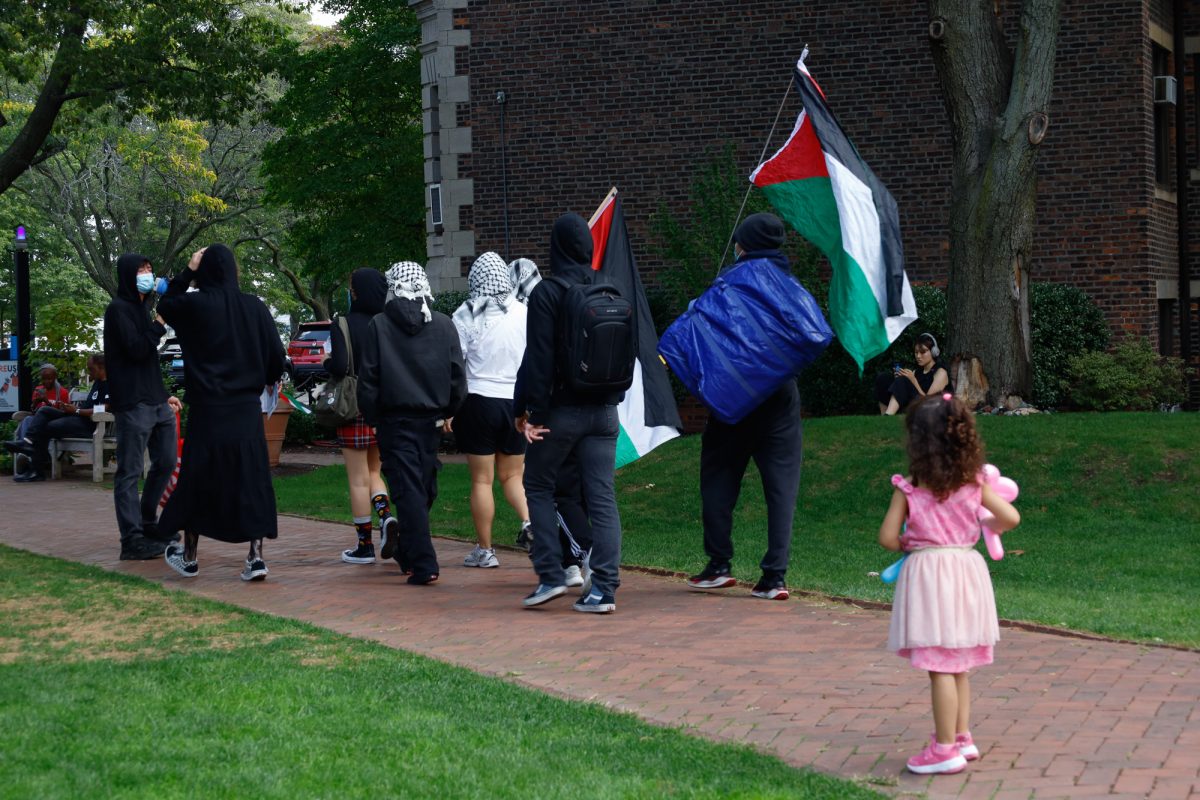
A series of community meetings discussing a body camera pilot program for the Boston Police Department began Monday, according to a digital flyer from the Boston City Council’s Committee on Public Safety and Criminal Justice.
The meetings, hosted by City Councilor Andrea Campbell, the Committee on Public Safety and Criminal Justice and the Social Justice Task Force, are being held in conjunction with a City Council meeting regarding the matter to take place this Tuesday, according to a Monday committee hearing notice.
Campbell said in a Wednesday press release that she hopes to hear input on an initiative that she strongly supports already.
“I fully support body cameras, and with all new policy developments, it is essential that we receive community input,” Campbell said in the release. “These community meetings are an opportunity for residents, stakeholders, and officers to express their thoughts about body cameras generally and their specific concerns and ideas for the pilot program policy.”
Campbell said in the release that a “diverse group of residents, activists, and Boston Police Department command staff” has contributed to the community hearings thus far.
“The meetings begin with a brief overview of the pilot program and continue with a robust discussion about what we should consider and contemplate as we develop a policy including issues of privacy, retention, selection of officers, potential penalties, and more,” Campbell said in the release.
Segun Idowu, co-organizer of the Boston Police Camera Action Team, has supported police use of body cameras since the founding of the organization.
“We chose body cameras and decided that early on that for us, it wasn’t a question of whether or not body cameras were a good idea, but we knew body cameras were coming to Boston, whether it be 2016 or 2026,” Idowu said. “We decided that policy was more important, and that it came from a community perspective rather than waiting for the police department to craft their own policy.”
Idowu said when developing impactful policies, community input is vital for success.
“We didn’t want to go to the City Council or the commissioner or the mayor and say that the community wants body cameras, and there were tumbleweeds behind us because no one supported it,” he said. “We conducted interviews. I would say some folks decided to be on camera or be photographed showing us support. We already talked to the community.”
Based on experience with previous contentious public issues, Idowu said she believes that residents need to have legitimate say in policy to exact real change.
“As residents of the city, we saw how the Walsh administration handled the Olympics and other important discussions of the city,” Idowu said. “The way they did that was by coming up with their plan, holding forums in the community and then saying, ‘We met with the community and they all agree with us,’ essentially, despite all the pushback that they were receiving.”
Idowu called Monday’s forum “disappointing” because of the arbitrary debates and loss of the big-picture effect this policy could have on the public.
“The whole point of this was to prevent us from becoming a Ferguson or a Baltimore, at least in the sense of response to acts of police brutality,” Idowu said. “Everyone else believed the officers because they were the ones who survived.”
Transparency is the key element in Idowu’s opinion, which he hopes will eliminate assumptions associated with police brutality.
Several Boston residents had mixed opinions regarding police body cameras in Boston.
Catherine Manning, 25, of Back Bay, said she supports the initiative despite possible costs.
“I think it varies from city to city,” she said. “I think it will be a huge expense, but if it will save lives, then I am absolutely in favor of body cameras in Boston.”
Owen Kasser, 27, of Back Bay, said it might be difficult to find overwhelming support in Boston.
“I know the police commissioner is against them — I heard about that,” he said. “I think it’s a good idea conceptually. I don’t know how it would work out in the field.”
Jessica Jacobs, 32, of Back Bay, was pleased to hear the city is taking public opinion into account.
“I think it’s good they’re asking for public input,” she said. “I think something like this is really important to put in front of people and ask them what they think.”
Lavanya Prabhakar contributed to the reporting of this article.


















































































































